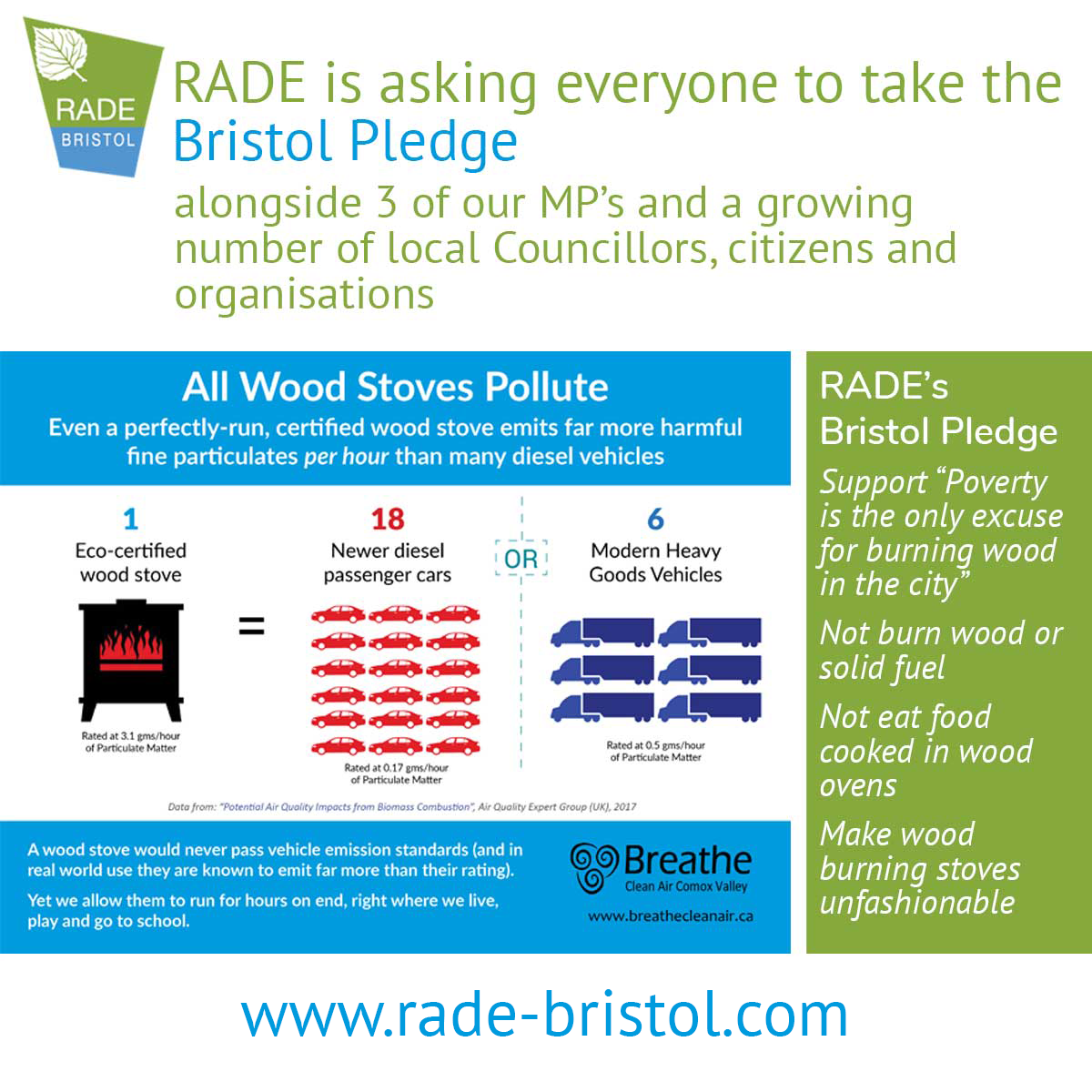RADE [Residents Against Dirty Energy] is asking everyone to adopt the 3 points of the Pledge in their daily lives. The Pledge is deliberately short for use on Twitter etc. The Pledge is enlarged in the blue text.
The Bristol Pledge In adopting the Bristol Pledge a person agrees to
- Support “Poverty is the only excuse for burning wood in the city”. Recognising that some people either burn wood or go cold, however, most people who choose to burn wood/solid fuel in the city have alternative [less polluting] options.
- Not Burn Wood or Solid Fuel. Either for heating, or cooking, or any other reason.
- Not eat food cooked in wood ovens. A few commercial establishments cook using wood, & impose the resulting air pollution on their neighbours all year long, not just the in winter. New evidence points to health risks from eating food infused with wood smoke particulates.
Make Wood Burning Stoves unfashionable. Most wood burners are a lifestyle choice – as people start to see wood burners as ‘unfashionable’, the trend reverses.
The Bristol Pledge comes from our work monitoring Particulate Air Pollution using Luftdateen Project sensors. The first sensors went live in December 2017, & immediately picked up a pattern of Particulate air pollution unrelated to traffic flows, but did fit the burning of wood that could be smelt. The longer we monitored, the closer the link with wood burning.
The Council’s own, recently published, “Health & Wellbeing in Bristol 2018 – Joint Strategic Needs Assessment [JSNA] 2018 data profile” – November 2018. States
- “In addition, a recent local report [“Health Impacts of Air Pollution in Bristol” Air Quality Consultants, 2017] estimates that around 300 deaths each year in Bristol can be attributed to exposure to both nitrogen dioxide (NO2) & fine particulate matter. This represents about 8.5% of deaths in Bristol being attributable to air pollution.”- page 85. 184 [61%] of these deaths are attributed to PM2.5 Particulates
- “Domestic solid fuel burning is a re-emerging area of concern. Recent evidence shows that this source contributes to 38% of all PM2.5 emissions nationally” [Defra “Clean Air Strategy 2018.”] – page 86. The same study attributes only 13% of PM2.5 emissions to Road Traffic.
“While it is being ignored, more & more woodstoves are being installed increasing the problem & impact they have on air pollution & people’s health. Any actions taken to reduce traffic pollution will be less effective overall if this avoidable source continues, need action on both.” Dr Gary Fuller – Kings College London – Nov 2018
Real-time monitoring of Particulate Air Pollution is being carried out across the city by a number of citizens, & can be viewed here.
To take RADE’s Bristol Pledge, or to find out more: contact@rade-bristol.com

